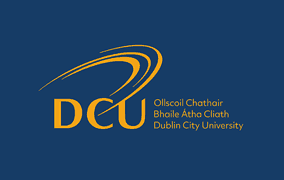The CTTS is pleased to announce a call for contributions to the edited volume: “Translation and Conflict: Narratives of the Spanish Civil War and the Dictatorship”. See below for further details.
Translation is one of the many forms in which works of literature are rewritten. As an exercise of rewriting translation is perhaps the most obvious one and the most influential (Lefevere 1992). As Bassnett and Lefevere argue “all rewritings reflect a certain ideology and as such manipulate literature to function in a given society in a given way. Rewriting is manipulation, undertaken in the service of power, and in its positive can help in the evolution of a literature and a society” (1990, p. ix). In the context of narratives of conflict, as Baker states, translation plays an important role in the management of such conflict (2006). Context and history are fundamental to analyse the relevance of these narratives and their translation. These rewritings, in turn, are influential in ensuring the survival of different perspectives and angles on narratives of conflict. In this sense, translation may become a crucial tool in reconstructing hostile conflicts.
Narratives of memory in Spanish literature deal with new debates on the experiences of trauma suffered by the Republicans during the Spanish Civil War (1936-1939) and under Franco’s dictatorship (1939-1975). The recovery of the memory of the defeated in these narratives allows to complete the cycle of the untold history hidden by the Regime and the Pact of Oblivion during the period of the Transition to democracy. The translation of narratives that deal with this local conflict and reflect the on-going debate in Spain necessarily involves a negotiating process by which these narratives are transferred to transnational scenarios. The translator thus becomes a key agent in negotiating these shifting narratives and projects them beyond the culture of origin. Some examples of translated works are Maria Dueñas´s The Seamstress, Almudena Grandes´s The Frozen Heart and The Wind from the East, Carlos Ruiz Zafón´s The Shadow of the Wind, and Dulce Chacón´s The Sleeping Voice.
The translation of the Spanish conflict imported into different languages will raise awareness between translation and concepts related to interdisciplinary fields such as feminism, culture, ethics, identity, translation studies, etc. In examining the translation of narratives of the Spanish conflict, we seek articles that focus on, but are not limited to, the following themes on:
Translation, National Discourse and Marginal Voices.
- Translation as Rewriting: the transmission of ideologies.
- Translation, Power and Identity.
- Translation and Censorship.
- Translation and Story/History.
- Translation and Memory Studies.
- Translation and National Canons.
- Translation and Trauma.
- Translation: Challenges and Possibilities in Reexamining the Past.
- Intergenerational and Transcultural Dialogue through Translation.
- Translation and Transcultural Memory.
- Translation and Hybrid Writing.
- Translation and Gendered Discourses.
- Translation and the Digital Humanities: digital archives, online blogs, fansubbing of documentary materials etc.
- Translation and Travel Writing: the translation of the Civil War into the Anglosphere through travel accounts (George Orwell, Kate O’Brien etc).
- The Reception of the Translated Works: do these novels cross-over effectively in other contexts? What role does translation play in that?
- Landscape of the Spanish Conflict in Translation.
Submission date for 300-350 word abstracts and brief biography: 15th September 2016.
The editors will contact selected contributors by 1st November 2016. Completed chapters, not longer than 5,000 words in English, are expected to be submitted by 1st September 2017.
Further details from:
Dr Alicia Castillo Villanueva: alicia.castillovillanueva@dcu.ie
Dr Lucía Pintado Gutiérrez: lucia.pintado@dcu.ie

